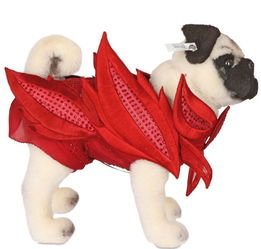
What to Do When Your Dog Bites You
When your dog bites you, it can be a shockingly painful and distressing experience. It’s important to handle the situation calmly and effectively to ensure your safety and your dog’s well-being. Here’s a detailed guide on what to do when your dog bites you.
Immediate Actions

1. Assess the Situation
If your dog bites you, the first thing you should do is assess the severity of the bite. Look for signs of bleeding, swelling, or infection. If the bite is minor, you can treat it at home. However, if it’s severe, seek medical attention immediately.
2. Clean the Wound
If the bite is minor, clean the wound with soap and water. Gently wash the area to remove any dirt or debris. Then, apply an antiseptic solution or hydrogen peroxide to prevent infection.
3. Apply Pressure
If the bite is bleeding, apply gentle pressure with a clean cloth or bandage. Elevate the injured area if possible to reduce bleeding. Do not remove the bandage until the bleeding has stopped.
Preventing Infection

4. Monitor for Infection
Keep a close eye on the bite wound for signs of infection, such as increased pain, redness, swelling, or fever. If you notice any of these symptoms, seek medical attention promptly.
5. Take Antibiotics
Your doctor may prescribe antibiotics to prevent infection. Follow the prescribed dosage and duration, even if the symptoms improve before the course is complete.
Dealing with Emotional Trauma

6. Comfort Your Dog
After a bite incident, your dog may be scared or confused. Comfort your dog by speaking in a calm, soothing voice and avoiding any harsh reprimands. This will help prevent future aggression.
7. Seek Professional Help
If you’re struggling to cope with the emotional trauma of the bite, consider seeking help from a professional dog trainer or a mental health counselor. They can provide guidance on how to handle the situation and prevent future incidents.
Understanding the Cause of the Bite
8. Analyze the Incident
To prevent future bites, it’s crucial to understand the cause of the incident. Consider factors such as your dog’s behavior, the environment, and any triggers that may have led to the bite.
9. Modify Your Behavior
If you notice any patterns in your behavior that may have contributed to the bite, make changes to prevent future incidents. This may include being more assertive, providing more exercise, or addressing any underlying issues.
Preventing Future Bites
10. Train Your Dog
Invest in professional dog training to teach your dog appropriate behavior and bite inhibition. This will help prevent future incidents and ensure your safety.
11. Socialize Your Dog
Exposure to various people, animals, and environments can help your dog become more comfortable and less likely to bite. Regular socialization can make a significant difference in your dog’s behavior.
12. Maintain a Safe Environment
Create a safe environment for both you and your dog. This may include securing dangerous objects, providing a safe space for your dog to retreat, and being vigilant during interactions with other animals.
| Severity of Bite | Immediate Actions | Preventive Measures |
|---|---|---|
| Minor | Assess, clean, apply pressure, monitor for infection | Training, socialization, maintaining a safe environment |
| Severe | Seek medical attention, clean, apply pressure, monitor for infection | Professional training, professional help for emotional trauma |
In conclusion, when your dog bites you, it’s essential to take immediate action to ensure your safety and your dog’s well-being. By understanding the cause of the bite and taking preventive measures, you can reduce the risk of future incidents and maintain a harmonious relationship with your furry friend.





